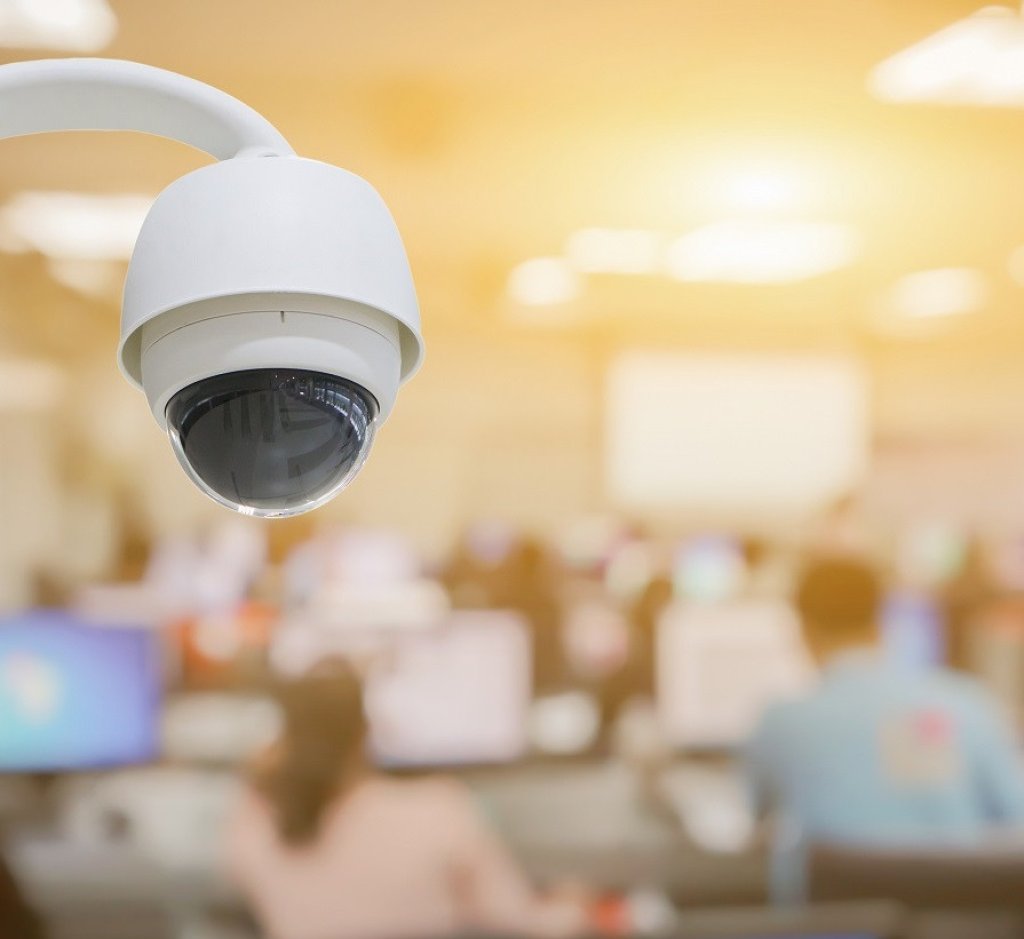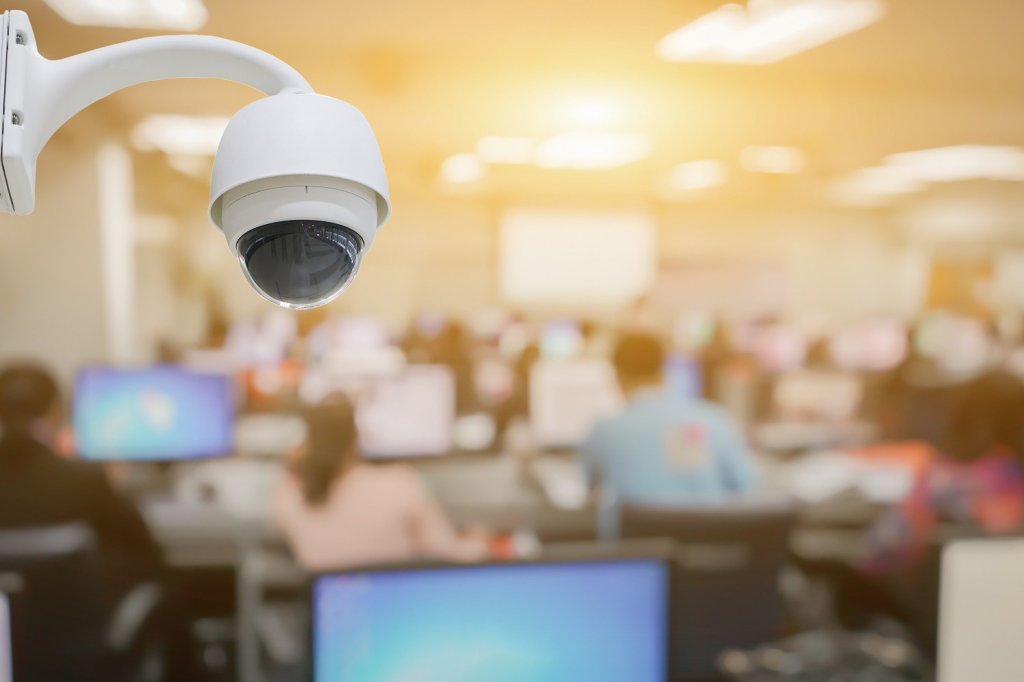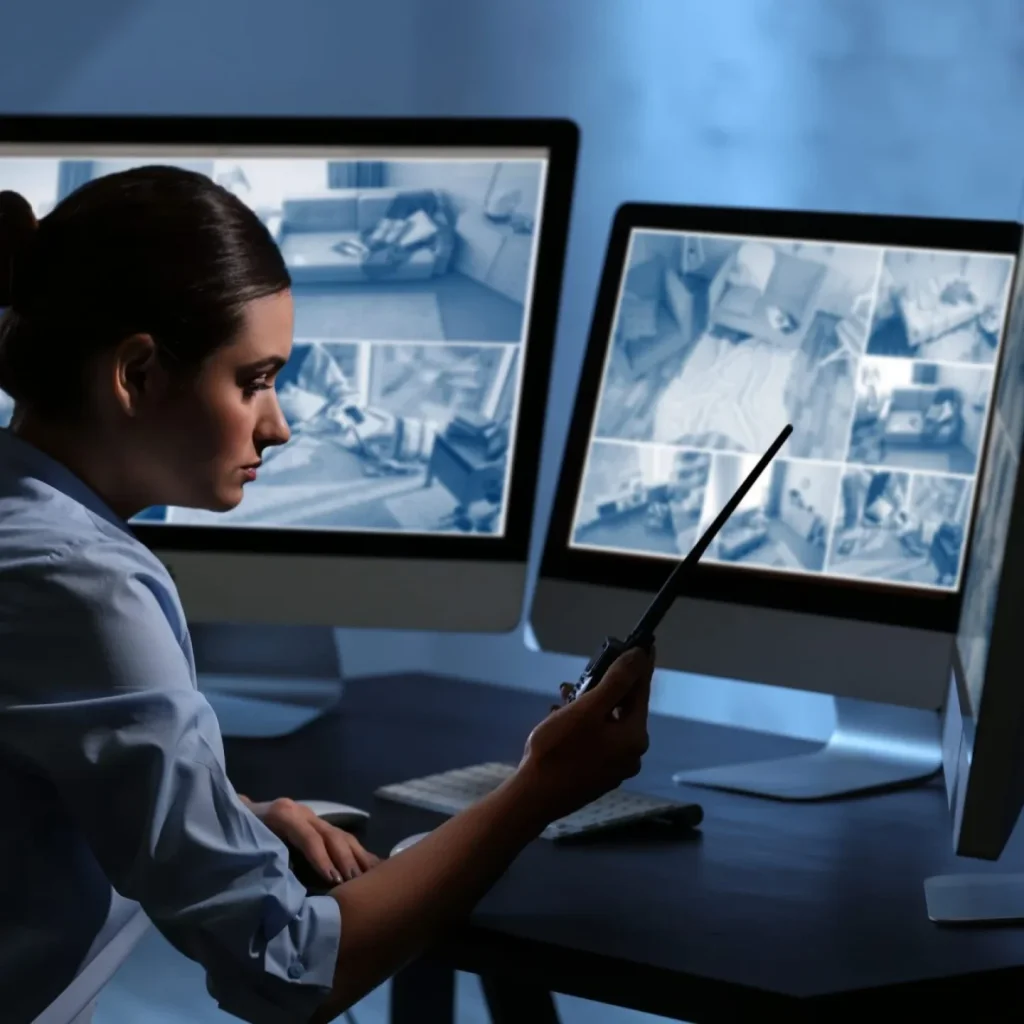Benefits of CCTV for businesses
Learn about the benefits that CCTV affords businesses, from traditional security benefits to extended safety, performance and production benefits.
Closed-circuit television (CCTV)
CCTV has been deployed by businesses for about 40 years.
While the main reason that businesses install CCTV systems is to bolster security, they can also provide a range of other benefits, including health and safety alerts, production optimisation, and real-world training material
Typical CCTV business benefits: Security
Typical security-related CCTV business benefits include:
Deterring theft
Deterring vandalism
Availability of video evidence
Business premises monitoring
Insurance claim support
Insurance premium reduction
Providing peace of mind
CCTV business benefits: Performance
In recent years, businesses have discovered extended non-security benefits of CCTV, such as:
Monitoring staff performance
Monitoring production performance
Monitoring staff safety
Developing training materials
Monitoring staff is subject to regulations and has to be implemented with care to avoid breaking privacy laws.
CCTV helps companies to improve the safety of staff, especially the well-being of staff who work alone or who work in remote locations.
Using CCTV footage to develop real-world training materials is a relatively new concept. Like staff monitoring, care must be taken not to breach people’s privacy rights. However, law enforcement, the NHS and healthcare organisations benefit from being able to train staff by showing real-world events in training programmes.
Benefits of CCTV for Businesses: A closer look
CCTV systems offer various benefits for businesses across many different industries. Here are some of the key advantages:
Crime deterrence
Deterrence is the main benefit of CCTV. The presence of cameras can discourage theft, vandalism and other criminal activities both inside and outside business premises.The College of Policing, for example, found that the most effective CCTV schemes were in parking facilities, which experienced a 51% decrease in crime when CCTV was in operation.
Enhanced security
CCTV systems provide continuous monitoring of premises, which enables businesses to identify and respond promptly to security threats.
Threats can include unauthorised access, suspicious behaviour and potential security breaches.Employee safety
CCTV cameras can contribute to the safety of employees by monitoring workplace activities and environments.
In hazardous areas or situations, cameras can help to ensure adherence to safety protocols and provide evidence following accidents or other types of incidents.CCTV is particularly useful to monitor staff who work alone (lone worker vulnerability) or who work remotely and may be far away from assistance or medical facilities.
CCTV can detect ‘man down’ incidents (slip and fall) and enable businesses to respond quickly and appropriately.
Loss reduction
By deterring theft and vandalism, CCTV systems can help businesses to minimise losses associated with inventory shrinkage, property damage, or fraudulent claims.
Retail theft has risen to unprecedented levels and CCTV can achieve significant cost savings in the long run.Evidence collection
In the event of a theft, security breach, accident or dispute, CCTV footage serves as valuable evidence for investigations and legal proceedings.Video evidence can help authorities to identify criminals, clarify events, and support decision-making processes.
Improved productivity
It is important to note that employee surveillance must be carried out in full compliance with privacy laws such as GDPR. https://ico.org.uk/for-organisations/uk-gdpr-guidance-and-resources/However, CCTV can provide valuable analytical data to improve business processes such as production and manufacturing efficiency, sales engagement, and customer flow.
When used compliantly and transparently, CCTV cameras can also promote a sense of accountability among employees and encourage adherence to company policies and procedures.
Remote monitoring
Many modern CCTV systems offer remote access capabilities, which enables businesses or security personnel to monitor premises from anywhere that has an internet connection.Compared with the week-in week-out costs of security guards or 24/7 manned security, CCTV monitoring can help to reduce costs without impacting safety and security.
Remote monitoring also facilitates proactive responses to security issues.
Insurance benefits
Some insurance providers offer reduced premiums for businesses that install CCTV systems.
The presence of cameras statistically lowers the risk of incidents and provides insurers with greater confidence in the security measures implemented by the business.Customer confidence
Visible CCTV cameras can instil confidence in customers and visitors, as cameras assure them that the business takes security seriously.
Attention to security can contribute to a positive reputation and foster trust in a brand.Regulatory compliance
In certain industries, regulatory bodies may require businesses to maintain CCTV surveillance as part of compliance standards.Implementing a CCTV system helps to ensure adherence to legal requirements and industry regulations.
Business benefits of CCTV: Conclusion
Overall, CCTV systems play a crucial role in safeguarding businesses, assets, and personnel, and have important extended capabilities to facilitate efficient operations.
CCTV compliance
To extract maximum value from CCTV use in your business, be sure to operate cameras compliantly. Notably, when sharing video with a third party - for example when fulfilling a subject access request – all but the subject must be redacted (blurred, masked) in order to avoid privacy regulation breaches.
Read how Facit helps businesses to automate CCTV video redaction for assured compliance.
Related articles




